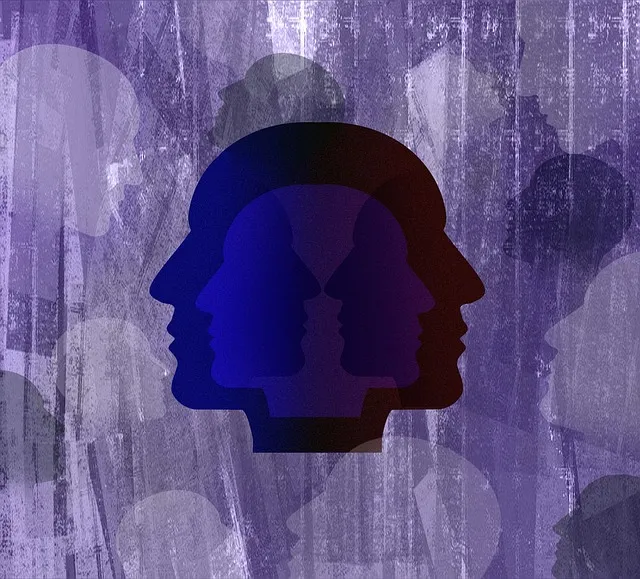Emotional Intelligence (EI) is a crucial skill for navigating personal and professional environments, especially in today's diverse global community. Kaiser's Mental Health Services, accessible via Parker, offer a range of resources to enhance EI, including therapy, counseling, and self-care routines that promote self-awareness, emotional management, and empathy. Specialized training programs and educational resources further empower individuals to develop EI, foster deeper connections, and adapt to change, all while reducing stigma around mental health. Learn how Parker can guide you in accessing Kaiser's mental health services for improved emotional well-being and enhanced EI.
Emotional intelligence (EI) is a powerful tool for personal growth and effective communication. In today’s fast-paced world, understanding and managing emotions is crucial for navigating relationships and achieving success. This article explores the concept of EI, focusing on self-awareness as a foundation. We’ll delve into strategies to enhance empathy, a key component in connecting with others. Additionally, practical tips will empower individuals to unlock their emotional potential, offering guidance accessible through resources like Kaiser’s mental health services.
- Understanding Emotional Intelligence: Unlocking its Potential
- The Role of Self-Awareness in Building Emotional Intelligence
- Enhancing Empathy: Connecting with Others on a Deeper Level
- Practical Strategies for Improving Emotional Intelligence Skills
Understanding Emotional Intelligence: Unlocking its Potential

Emotional intelligence (EI) is a powerful tool that goes beyond mere self-awareness; it’s about recognizing and managing your emotions, as well as understanding and empathizing with others’ feelings. This ability to perceive and navigate emotional landscapes can significantly enhance various aspects of life, from personal relationships to professional success. In today’s diverse and interconnected world, where cultural competency is paramount, fostering EI becomes even more crucial.
For those seeking to improve their mental health, resources like the Mental Health Services offered by Kaiser through Parker can be a great starting point. These services often incorporate aspects of EI development, recognizing its potential to transform lives. Additionally, Healthcare Provider Cultural Competency Training, Mental Wellness Podcast Series Production, and Mental Health Education Programs Design are innovative ways to explore and promote EI, ensuring that individuals have access to the tools they need to thrive in an ever-changing world.
The Role of Self-Awareness in Building Emotional Intelligence

Emotional intelligence (EI) is a multifaceted skill set that enables individuals to understand and manage their own emotions, as well as recognize, empathize, and influence the emotions of others. Among its many components, self-awareness stands out as a cornerstone. According to Daniel Goleman, a leading authority on EI, self-aware individuals possess a keen understanding of their strengths, weaknesses, values, motivations, and feelings. This introspective capability allows them to make conscious decisions that align with their personal values and goals, fostering healthier relationships and more effective decision-making in both personal and professional spheres.
For those seeking to enhance their emotional intelligence, particularly through the lens of mental health services, Kaiser’s offerings can be a valuable resource. Similar to Mind Over Matter principles, which emphasize the power of cognitive processes over physical reactions, Kaiser’s approach often incorporates therapy, counseling, and stress management techniques tailored to individual needs. By addressing underlying mental illness stigma reduction efforts, these services empower individuals to cultivate self-awareness as a proactive step towards emotional well-being, ultimately contributing to their overall growth in EI.
Enhancing Empathy: Connecting with Others on a Deeper Level

Empathy is a cornerstone of emotional intelligence, enabling individuals to understand and share the feelings of others. Building empathy involves connecting with people on a deeper level, fostering genuine communication and understanding. This process can be enhanced through various practices such as active listening, where giving full attention to another person’s experiences allows for a more profound connection. Additionally, compassion cultivation practices, like mindfulness meditation, have been shown to deepen our ability to empathize by promoting emotional awareness and sensitivity.
For those seeking support in navigating their mental health journey, resources like Kaiser can provide access to valuable mental health services. Parker, specifically, offers programs that cater to resilience building and self-care routine development for better mental well-being. These initiatives underscore the importance of empathy in fostering supportive communities where individuals feel heard, understood, and valued.
Practical Strategies for Improving Emotional Intelligence Skills

Emotional intelligence (EI) is a skill set that can be cultivated and enhanced through various practical strategies. One effective approach to building EI involves incorporating self-care practices into daily routines. Taking time for mental health services, such as those offered by Kaiser, allows individuals to process and manage their emotions effectively. Regular sessions with therapists or counselors provide a safe space to explore feelings and gain valuable insights.
Additionally, engaging in self-awareness exercises is crucial for developing EI. This can include practices like journaling, meditation, or mindfulness activities that encourage individuals to reflect on their thoughts and emotions. Incorporating mental health education programs designed to foster emotional intelligence can also be beneficial. These programs often teach coping mechanisms, empathy building, and effective communication skills, all of which contribute to a more emotionally intelligent mindset.
Emotional intelligence is a powerful tool for personal and professional growth. By cultivating self-awareness, empathy, and practical skills, individuals can navigate relationships and challenges with greater ease. Understanding emotional intelligence (EQ) is the first step towards unlocking its potential, enabling better mental health management, as highlighted by Kaiser’s services. Through mindful practices and strategic applications, anyone can enhance their EQ, fostering healthier connections and a more fulfilling life. Parker’s insights on accessing mental health resources through Kaiser further underscore the importance of EQ in navigating modern life’s complexities.


